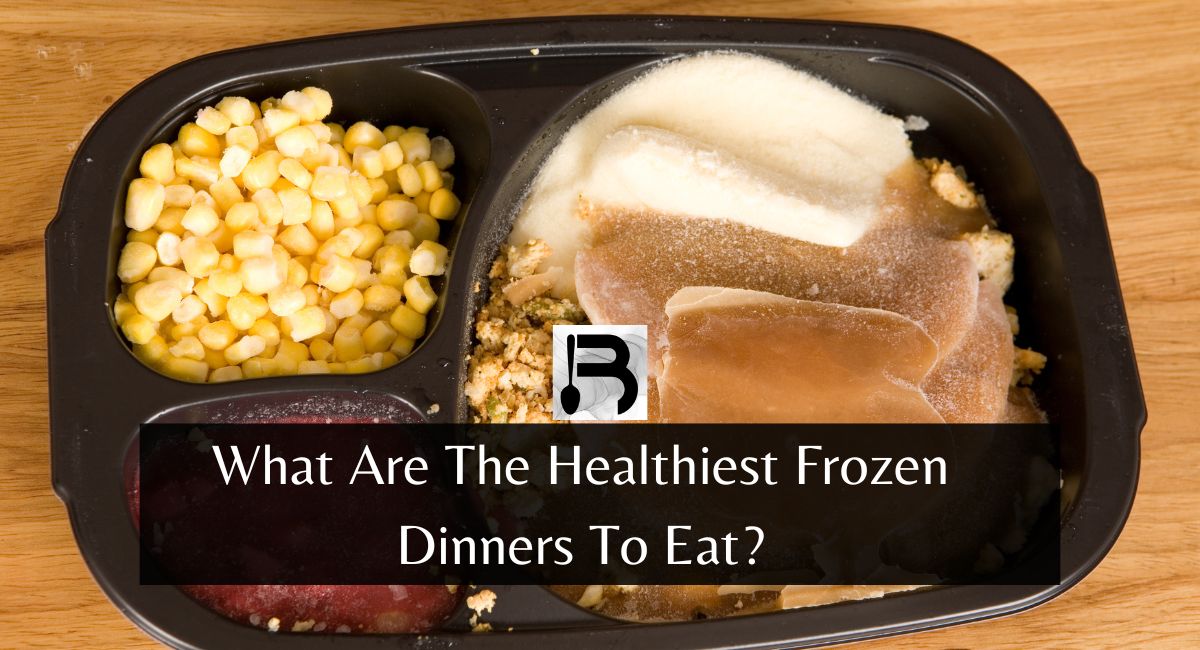In today’s fast-paced world, frozen dinners have become a staple for those seeking quick, convenient meals. However, not all frozen meals are created equal.
Amidst the vast freezer aisles filled with a myriad of options, discerning which dinners are both tasty and nutritious can be a challenge. From sodium content to ingredient quality, there’s a lot to consider.
This article aims to guide readers through the maze of choices, spotlighting the healthiest frozen dinners that don’t compromise on flavor or nutrition.
Can Frozen Dinners Be Healthy?
Yes, frozen dinners can be nutritious, but moderation is required. When choosing a frozen meal, emphasize those with natural, entire foods and avoid those with excessive salt or artificial additions.
A well-balanced macronutrient distribution (proteins, carbs, and fats) is vital. It’s also a good idea to think about portion sizes and make sure they match your nutritional demands.
Reading labels and rotating meal options allow you to enjoy the convenience of frozen dinners while still eating a nutritious diet.
What Are The Healthiest Frozen Dinners To Eat?
When searching for healthy frozen dinners, it’s essential to consider the meal’s nutritional content, ingredient list, and portion size. While the market for frozen dinners has expanded significantly, with many brands now offering healthier options, not all frozen meals are created equal. Here are some general guidelines and specific criteria to help you identify healthier choices:
1. Amy’s
A pioneer in organic frozen meals, Amy’s offers a range of options, from comforting mac and cheese to international dishes. Their emphasis on non-GMO ingredients and vegetarian and vegan options makes them a favorite among health-conscious consumers.
2. Evol
Evol’s commitment to antibiotic-free meat and non-GMO ingredients is commendable. Their range of bowls, from classic favorites to modern grain bowls, offers something for everyone.
3. Luvo
With a focus on balanced nutrition, Luvo’s meals often combine lean proteins, whole grains, and vegetables. Their use of herbs and spices over salt and artificial flavors is a healthier approach to tasty meals.
4. Saffron Road
Celebrating global flavors, Saffron Road offers dishes from various cuisines, prepared with halal meat and emphasizing natural ingredients. Their meals are a testament that frozen food can be both healthy and flavorful.
5. Healthy Choice
A well-known brand that has evolved over the years, Healthy Choice now offers lines that focus on whole ingredients, lean proteins, and diverse flavors, moving away from the high-sodium, low-nutrient reputation of many traditional frozen dinners.
6. Kashi
Rooted in whole grains and plant-based nutrition, Kashi’s frozen meals often incorporate unique grains like red quinoa and freekeh, combined with vegetables and legumes for a fiber and protein-packed meal.
7. Lean Cuisine
Lean Cuisine has expanded its offerings to cater to modern dietary needs. Their Marketplace line, for instance, includes gluten-free, high-protein, and organic ingredient options.
General Guidelines:
- Whole Ingredients: Look for meals that list whole foods as the primary ingredients, such as lean meats, whole grains, and vegetables.
- Low in Sodium: Many frozen dinners are high in sodium. Aim for meals with less than 600 mg of sodium per serving, if possible.
- Moderate Calories: Depending on your dietary needs, a meal ranging from 300-600 calories might be appropriate. However, always consider your personal caloric needs.
- Limited Added Sugars: Avoid meals with high added sugar content. Check the ingredient list for names like sucrose, glucose, fructose, maltose, and corn syrup.
- Healthy Fats: Opt for meals that contain healthy fats from sources like olive oil, nuts, and avocados, and avoid those with trans fats or high saturated fat content.
- High in Protein and Fiber: These will help you feel full and satisfied. Look for meals with at least 10-20 grams of protein and 3-5 grams of fiber.
- Limited Artificial Ingredients: The fewer additives, artificial colors, and preservatives, the better.
Bottom Line
The healthiest frozen dinners prioritize whole foods, lean proteins, and vegetables while minimizing added sugars, sodium, and unhealthy fats. By focusing on meals rich in whole grains, low in sodium, and free from trans fats, consumers can enjoy the convenience of frozen meals without sacrificing their health.
Brands like Amy’s, Evol, and Saffron Road are just a few examples that often offer nutritious options. As always, reading labels and understanding individual nutritional needs is key to making informed choices in the frozen food aisle.
Read More: What Does Green Tea Do To The Body?

